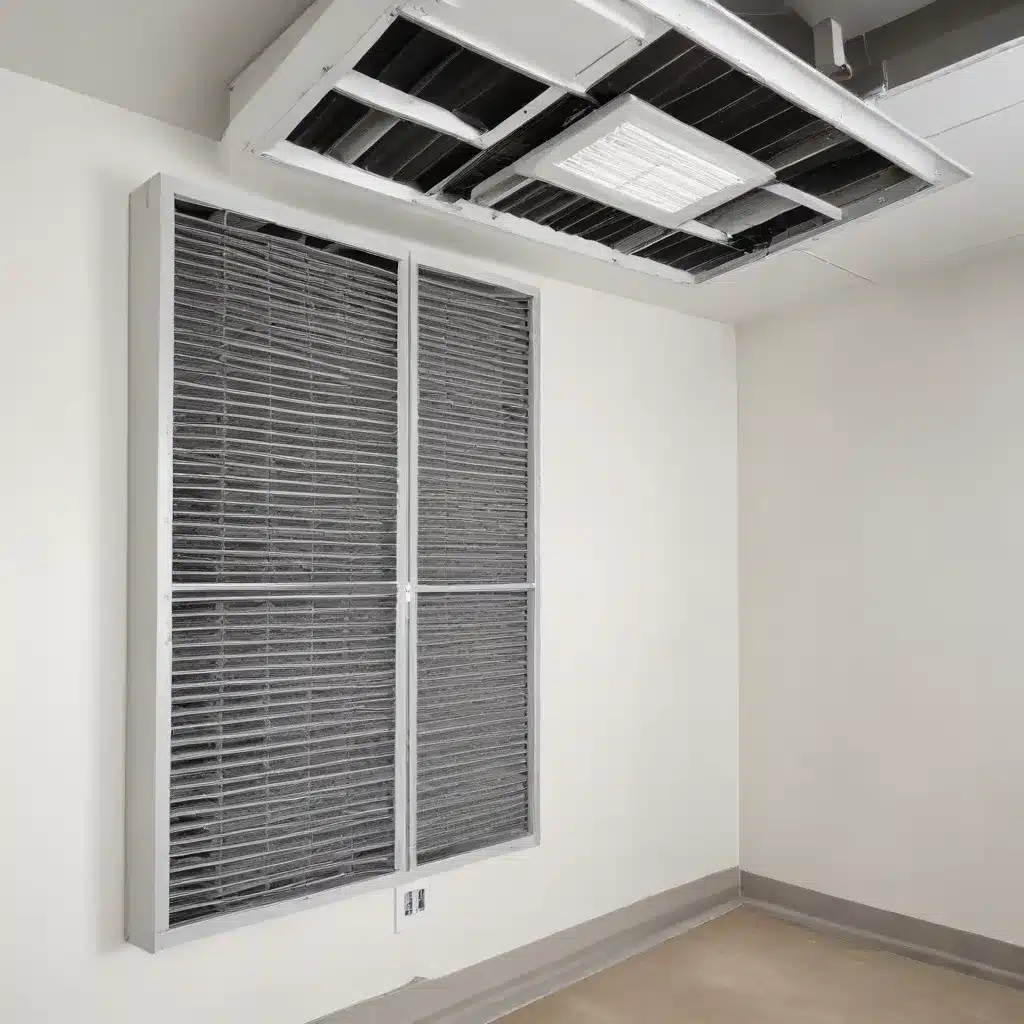
The Importance of Maintaining Optimal Indoor Air Quality
Indoor air quality (IAQ) plays a crucial role in determining the health, comfort, and overall well-being of individuals who spend a significant portion of their time in enclosed environments, such as homes, offices, schools, and commercial buildings. Unfortunately, poor IAQ has become a growing concern, with the World Health Organization (WHO) reporting that air pollution is now the world’s largest single environmental health risk, linked to around 7 million deaths worldwide in 2012.
The impact of air pollution on respiratory health is well-documented, but recent studies have also highlighted its detrimental effects on cardiovascular health, cancer, and even cognitive function. In India, the burden of respiratory diseases like asthma and chronic obstructive pulmonary disease (COPD) has been steadily rising, with an estimated 17.23 million and 14.84 million cases, respectively. This alarming trend has been attributed to a combination of factors, including urbanization, industrialization, and increasing environmental pollution.
The Role of HVAC Systems in Maintaining Indoor Air Quality
Heating, ventilation, and air conditioning (HVAC) systems play a crucial role in ensuring optimal indoor air quality by addressing several key aspects:
Filtration and Particle Removal: HVAC systems are equipped with air filters that can effectively remove a wide range of airborne pollutants, including dust, pollen, pet dander, and other particulate matter. The efficiency of these filters is measured by their ability to capture particles of different sizes, with high-efficiency particulate air (HEPA) filters capable of removing 99.97% of particles 0.3 microns or larger.
Humidity Control: HVAC systems help maintain the ideal indoor humidity levels, which is essential for preventing the growth of mold, mildew, and other microorganisms that can negatively impact air quality and respiratory health.
Ventilation and Air Circulation: HVAC systems are responsible for providing adequate ventilation, which helps dilute and remove indoor air pollutants, such as volatile organic compounds (VOCs), carbon dioxide, and other gases. Proper air circulation ensures that fresh, filtered air is distributed evenly throughout the indoor space.
Implementing Advanced HVAC Filtration Solutions
To enhance indoor air quality effectively, it is essential to go beyond basic HVAC filtration and explore more advanced solutions. Some of the key strategies include:
High-Efficiency Particulate Air (HEPA) Filters
HEPA filters are designed to remove up to 99.97% of airborne particles 0.3 microns or larger, making them highly effective at capturing a wide range of pollutants, including dust, pollen, pet dander, and even some viruses and bacteria. By incorporating HEPA filters into HVAC systems, building owners and managers can significantly improve the quality of the indoor air, reducing the risk of respiratory issues and other health problems.
Activated Carbon Filters
In addition to particulate matter, HVAC systems may also need to address gaseous pollutants, such as volatile organic compounds (VOCs), which can be emitted from various indoor sources like cleaning products, furniture, and building materials. Activated carbon filters are highly effective at adsorbing these gaseous pollutants, further enhancing the overall indoor air quality.
UV Light Purification
Ultraviolet (UV) light technology has emerged as a powerful tool in air purification, as it can effectively neutralize and destroy airborne microorganisms, including bacteria, viruses, and mold spores. By incorporating UV light purification systems into HVAC units, building owners can create an additional layer of defense against biological contaminants, ensuring a healthier indoor environment.
Smart Sensing and Automation
Innovative HVAC technologies now offer advanced sensing and automation capabilities, allowing systems to monitor indoor air quality in real-time and automatically adjust ventilation, filtration, and other parameters to maintain optimal conditions. This dynamic approach ensures that IAQ is consistently monitored and adjusted, optimizing conditions for health and comfort.
The Benefits of Advanced HVAC Filtration
Investing in advanced HVAC filtration solutions can provide a range of benefits for building occupants, including:
-
Improved Respiratory Health: By reducing exposure to airborne pollutants, advanced HVAC filtration can help mitigate the symptoms of respiratory conditions like asthma and COPD, as well as lower the risk of developing these conditions.
-
Enhanced Cardiovascular Health: Studies have shown that reducing indoor particulate matter levels can have a positive impact on vascular function and decrease the risk of cardiovascular events, such as strokes and heart disease.
-
Increased Productivity and Cognitive Performance: Improved indoor air quality has been linked to better cognitive function, decision-making abilities, and overall workplace productivity.
-
Reduced Health-Related Absenteeism: Healthier indoor environments can lead to fewer respiratory and cardiovascular-related illnesses, resulting in reduced absenteeism and uninterrupted business operations.
-
Improved Occupant Comfort and Satisfaction: When building occupants experience a comfortable and healthy indoor environment, they are more likely to enjoy spending time in the space and may even recommend it to others.
Prioritizing HVAC Maintenance for Optimal IAQ
Maintaining HVAC systems is crucial for ensuring optimal indoor air quality and system efficiency. Regular inspections, filter replacements, and cleaning of components like coils and ducts can prevent the buildup of dust, debris, and other pollutants that can compromise IAQ.
By partnering with experienced HVAC professionals, building owners and managers can ensure that their systems are operating at peak performance, delivering clean, fresh air and maintaining a healthy indoor environment for occupants.
Conclusion
Enhancing indoor air quality through advanced HVAC filtration is a critical investment in the health, well-being, and productivity of building occupants. By incorporating high-efficiency particulate air (HEPA) filters, activated carbon filters, UV light purification, and smart sensing technologies, building owners and managers can create a healthier, more comfortable indoor environment that mitigates the risks of respiratory and cardiovascular diseases, while also boosting cognitive function and overall occupant satisfaction.
Prioritizing HVAC maintenance and partnering with experienced professionals are essential steps in maintaining optimal indoor air quality and ensuring the long-term effectiveness of advanced filtration solutions. By taking a proactive approach to IAQ management, building owners can create spaces that support the health and well-being of their occupants, ultimately enhancing their overall quality of life.
To learn more about enhancing indoor air quality through advanced HVAC filtration, or to schedule a consultation with our team of experts, please visit https://localbuilderlondon.co.uk/.


